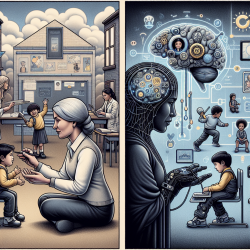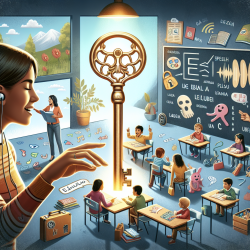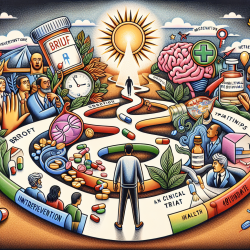In the ever-evolving landscape of educational environments, practitioners are continuously seeking innovative approaches to enhance learning outcomes. The research article "On the Application of Developmental Cognitive Neuroscience in Educational Environments" provides groundbreaking insights that can significantly impact speech therapy practices, particularly for children. Here’s how you can leverage these findings to improve your skills and achieve better outcomes for your young clients.
Understanding Brain Networks
One of the pivotal findings of the research is the importance of brain networks over localized brain functions. The brain operates through a series of interconnected networks, which are more significant for learning and cognitive development than isolated brain regions. For speech therapists, this means focusing on activities that enhance these networks can lead to more effective therapy sessions.
Emphasizing Context in Learning
The research highlights that a learner’s performance is highly dependent on the context in which information is provided. For speech therapy, this underscores the importance of creating a conducive learning environment that mimics real-life situations. By doing so, children can better relate to and retain the skills they are learning.
Incorporating Physical Activity
Physical activity has been shown to increase Brain-Derived Neurotrophic Factor (BDNF), which promotes neural growth and cognitive function. Integrating movement into speech therapy sessions can not only make the sessions more engaging but also enhance the brain’s capacity to learn and retain new information.
Fostering Emotional Connections
Emotions play a crucial role in learning and memory. The research suggests that creating an emotional connection with the learning material can significantly improve retention. For speech therapists, this means using stories, games, and activities that evoke positive emotions, making the learning process more enjoyable and effective.
Continuous Assessment and Feedback
Continuous assessment is more beneficial than endpoint evaluations. Regular feedback helps in reinforcing learning and making necessary adjustments in real-time. Implementing continuous assessment strategies in your speech therapy practice can lead to more personalized and effective interventions.
Encouraging Further Research
While the research provides a robust framework, it also opens the door for further exploration. Practitioners are encouraged to stay updated with the latest findings in developmental cognitive neuroscience to continually refine their practices.
To read the original research paper, please follow this link: On the Application of Developmental Cognitive Neuroscience in Educational Environments.










